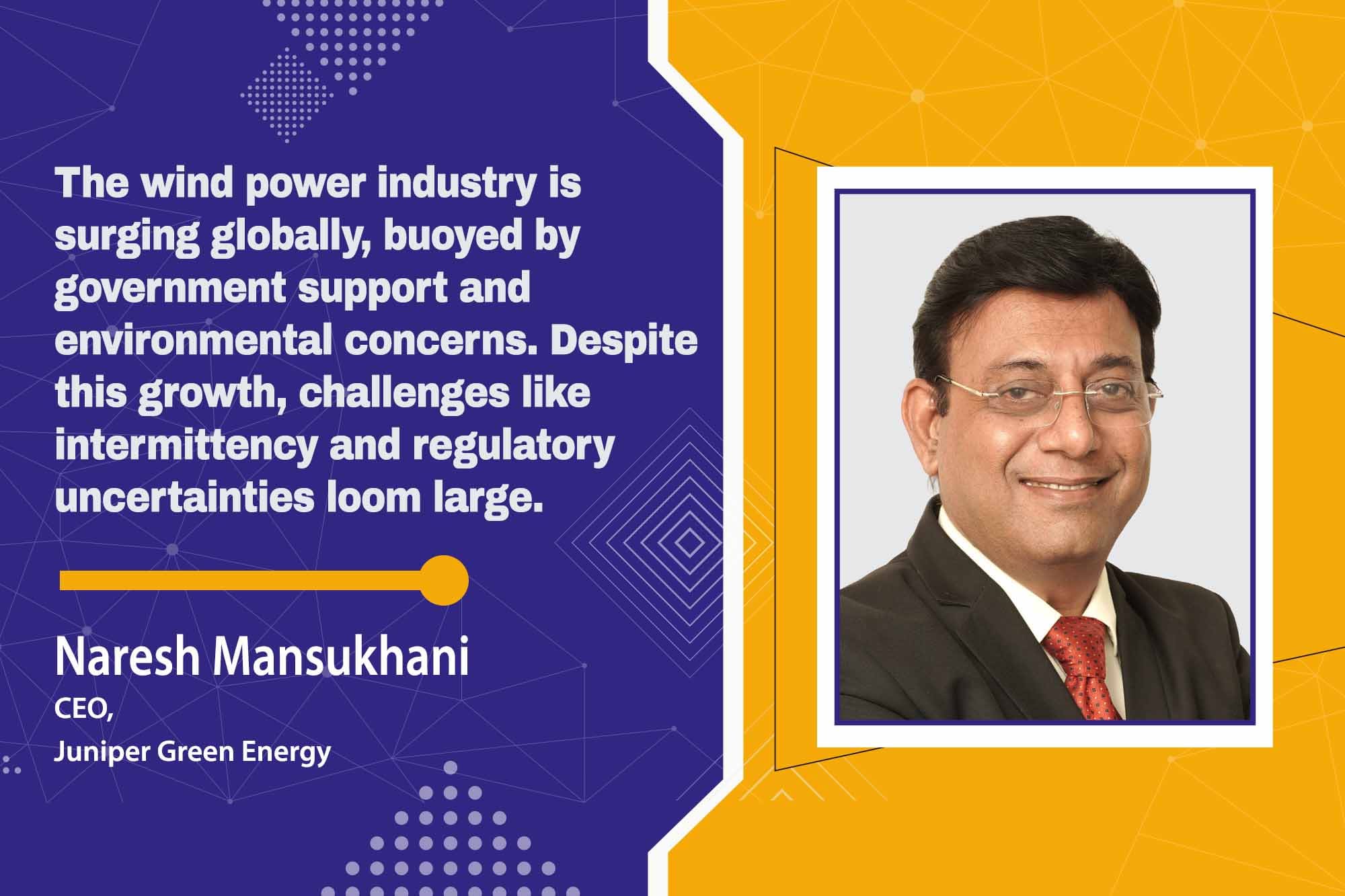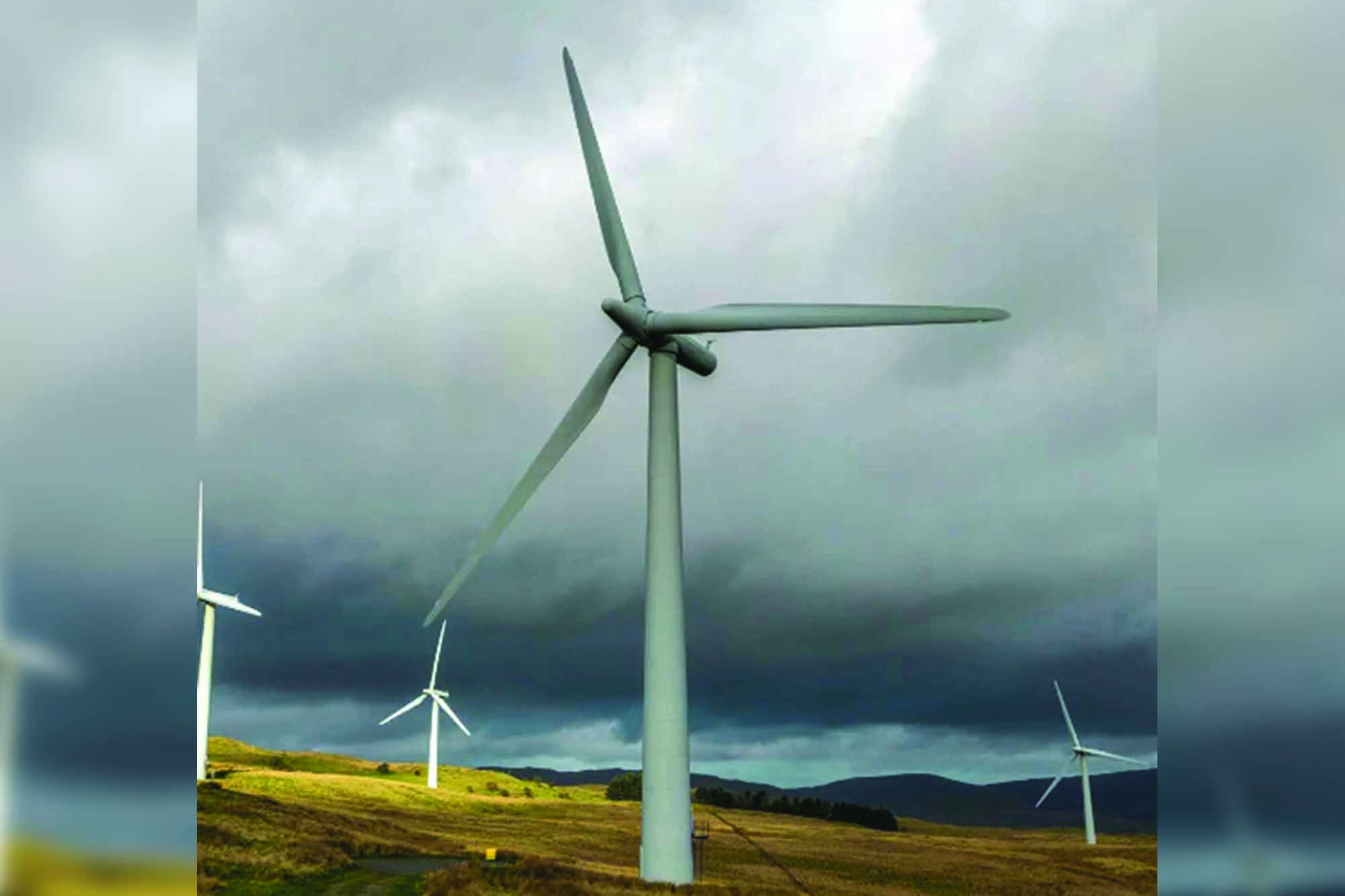Compliance with regulations, market forces, and industry standards in the wind energy
By EPR Magazine Editorial May 25, 2024 6:55 pm IST
By EPR Magazine Editorial May 25, 2024 6:55 pm IST

The wind power industry is surging globally, buoyed by government support and environmental concerns. Despite this growth, challenges like intermittency and regulatory uncertainties loom large.
India’s wind energy industry must prioritise cost competitiveness, grid infrastructure investment, policy adaptability, and local development initiatives. These strategies promote the wind energy industry’s long-term growth by ensuring adaptation to local demands.
What market forces promote wind power growth, and what difficulties do they pose to stakeholders?
Recent market dynamics are primarily fueled by supportive government policies and incentives worldwide. Governments are increasingly implementing subsidies, tax credits, and renewable energy targets to promote the adoption of renewable energy sources, including wind power.
Moreover, mounting concerns about climate change and environmental degradation have amplified public support for renewable energy, further driving the expansion of the wind power industry.
Despite these favourable trends, industry stakeholders face challenges such as intermittency and grid integration issues, land use conflicts, and regulatory uncertainties, which necessitate careful planning and collaboration to ensure the sustainable growth of wind power.
How do governments modify incentives to promote wind power expansion in the face of changing energy policy, and how does this affect industry players?
The government has announced plans to seek bids for 50 GW of renewable energy capacity each year over the next five fiscal years, from FY 2023–24 to FY 2027–28. The ministry is working incessantly to achieve a smooth transition towards upgrading and building the transmission system capacity. Additionally, it has exempted concessional custom duty for various components necessary for producing wind electric generators, including certain raw materials essential for manufacturing turbine blades. These initiatives encourage industry players to engage in more public-private partnerships to expand business.
How are wind project developers employing creative ways to increase efficiency and lower costs in a competitive market?Optimising the efficiency and cost-effectiveness of wind projects requires a multifaceted approach. Every task, from the selection of land for the wind farm to the energy storage in power grids, must be performed with the utmost attention. The industry is heavily dependent on technology upgrades, so developers are allocating significant amounts to remain at the forefront. Predictive maintenance strategies are preferred to ensure that turbines last for a prolonged period, consisting of advanced downtime tracking software to analyse data and forecast when maintenance becomes necessary.
How can using battery storage technology improve wind energy reliability, and what challenges must developers overcome?
Integrating battery storage technology with wind power enhances reliability and grid integration by mitigating the inherent variability of wind generation. Batteries store excess energy during periods of high wind output, smoothing fluctuations and providing a more consistent power supply to the grid. This firming effect makes renewable energy more reliable and dispatchable, supporting grid stability. Additionally, battery storage enables peak shaving and load management, reducing strain on the grid during periods of high demand. Nevertheless, addressing the initial investment challenges associated with battery storage deployment is crucial. The high upfront costs occur due to the limited availability of raw materials necessary for battery production. Notably, the scarcity of lithium reserves in India necessitates reliance on imports from China, thereby inflating procurement expenses.
How can businesses successfully navigate and grow in India’s wind power market with regulatory changes and competition?
In navigating India’s dynamic wind power EPC market, companies must strategically align their operations with evolving regulatory frameworks and competitive pressures. Since the shift to auction regimes in 2017, the market has seen significant changes, highlighting the demand for being competitive and introducing diversified services. Companies should focus on offering comprehensive solutions beyond traditional EPC to meet this demand.

Authored by: Naresh Mansukhani, CEO, Juniper Green Energy
We use cookies to personalize your experience. By continuing to visit this website you agree to our Terms & Conditions, Privacy Policy and Cookie Policy.